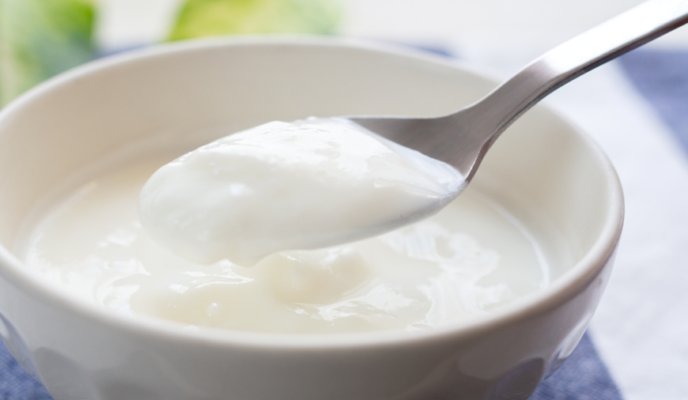Foods that promote the growth of good bacteria in our bodies are called probiotics. Examples of some probiotics are curd, yogurt, fermented cheese etc. Among dairy products, curd contains sugar, lactose and protein casein. Homemade curd is full of several species of lactobacillus that convert lactose into lactic acid. Probiotics are useful for better digestion, boosting immunity and compensating the deficient calcium levels in bones. So do include curd in your daily diet.
Health benefits of homemade curd
Bone and muscle health – Curd is rich in minerals like calcium, phosphorus, and magnesium. This increases bone density, power and flexibility. Consuming a small portion of curd in your daily diet can reduce the chance of developing arthritis and osteoporosis in later years of life.
Good for digestion and gut health – Curd is a probiotic that contains good beneficial gut bacteria that enhances gut activity, thereby healthy digestion of foods.
Enhances immunity – The bacteria found in curd keep intestinal and gut health protected. This also boosts immunity.
Effective against hypertension – Potassium and sodium are responsible for the normal functioning of blood pressure. Curd contains minerals like potassium which helps in regulating blood pressure and elevating heart functions. Potassium helps in removing excess salt from the body, thus decreasing pressures on arteries thereby managing elevated BP.
Good for skin – Our skin health is directly proportional to our gut health (digestion). The healthier the digestion, the healthier the skin. Curd is very useful for dry skin. It is widely used in several beauty products. It is an excellent exfoliator that clears all dead cells and blemishes.
Difference between curd and yogurt
Curd has ample amounts of calcium, protein and is useful for individuals with lactose intolerance. Curd is made by boiling and cooling milk and then adding a small quantity of curd and keeping it at 30-40 degrees Celsius for a few hours. The process of making yogurt is the same as that of curd. The only difference here is that the fermentation of milk is done by two specific strains of bacteria called Lactobacillus Bulgaris and Streptococcus Thermophilus. This makes yogurt a standard homogenous mixture that has the property of boosting gut health.
Disclaimer: The content on this site is for informational purposes only, and should not be taken as professional medical advice. Always seek the guidance of your doctor or other health professionals for any questions you may have regarding your health or a medical condition.

 Homemade curd is a great probiotic. Probiotics are useful for better digestion, boosting immunity and compensating the deficient calcium levels in bones. Here are some amazing health benefits of homemade curd which will compel you to include it in your daily diet.
Homemade curd is a great probiotic. Probiotics are useful for better digestion, boosting immunity and compensating the deficient calcium levels in bones. Here are some amazing health benefits of homemade curd which will compel you to include it in your daily diet.










.jpeg)



.jpg)





.jpeg)



.jpg)


.jpg)




.jpg)


